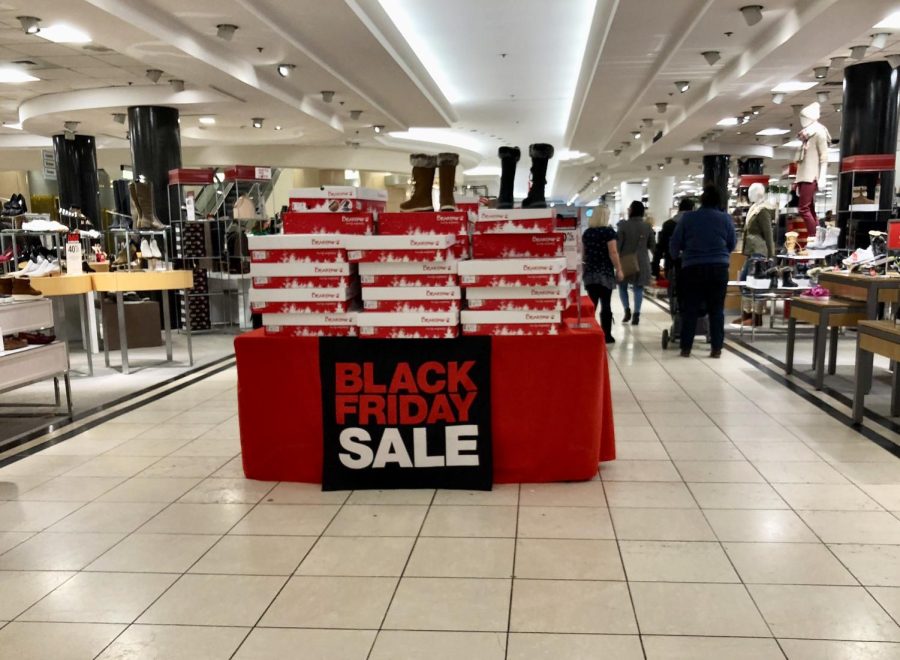Black Friday Shoppers Turning Towards Online and Choosing to Opt Out
There are many stories about where the name “Black Friday” actually originated, but the most common is that the name Black Friday comes from companies turning a profit on the day after Thanksgiving. Commonly known as going from being “in the red”, or in debt, to being “in the black”, or making a profit.
Black Friday shopping has become a part of American holiday culture, this year was no exception with record breaking sales across the board for many retailers. The average American spent $500 on Black Friday alone according to Forbes.
The consumerism culture in America has caused Black Friday to become the biggest shopping day of the year, with 76% of Americans shopping on the weekend of Nov. 25 according to Forbes.
Holiday shopping has seen trends over the years as new methods of shopping have come to the forefront of consumerism. However, online shopping has completely shifted holidays like Black Friday. According to Adobe Analytics, on Cyber Monday, shoppers spent 11.3 billion dollars in total sales, up 6% from the previous year. Not only has Covid shifted the way Black Friday looks and where people go to spend their money, but people are beginning to prefer online shopping.
Morgan Troutt, school counselor, has seen the shift towards online shopping in recent years and attributes part of it to the pandemic. “I would say since the pandemic [I prefer] online shopping,” said Troutt. “Well, I did online shopping first, to get the deals.” After doing her online shopping, she made her way to the in-person sales. Despite large price drops with in person sales, Troutt still prefers to do her holiday shopping online.
Others however, prefer to not shop on Black Friday at all. “No Black Friday shopping for u,.” said Anna Bacon, English teacher. “We make a point to put our phones away and spend it all with our family no matter where we are.” This was different before Covid she said, “Before (COVID), my sister and my mom would go out to the stores 100% on Black Friday.” People like Bacon are not the only ones working to lower their consumption on Black Friday.
Brands and stores have joined in at working to counter high consumption holidays. REI, an outdoor recreation store, closes all stores and does not process orders on Black Friday. Doing this since 2015, REI has acknowledged the environmental impacts the holiday can have and chooses to “opt-out” through encouraging employees to get outside and spend the day with their family.
Black Friday, although facing controversy, still holds as a main turning point financially for many companies in the year. After returning from several years with exclusive online shopping due to Covid, in person shopping has begun to make its way out of the Black Friday scene. As more people become aware of the impacts of the holiday and choose to not partake, the future of the day might continue to increasingly change.




